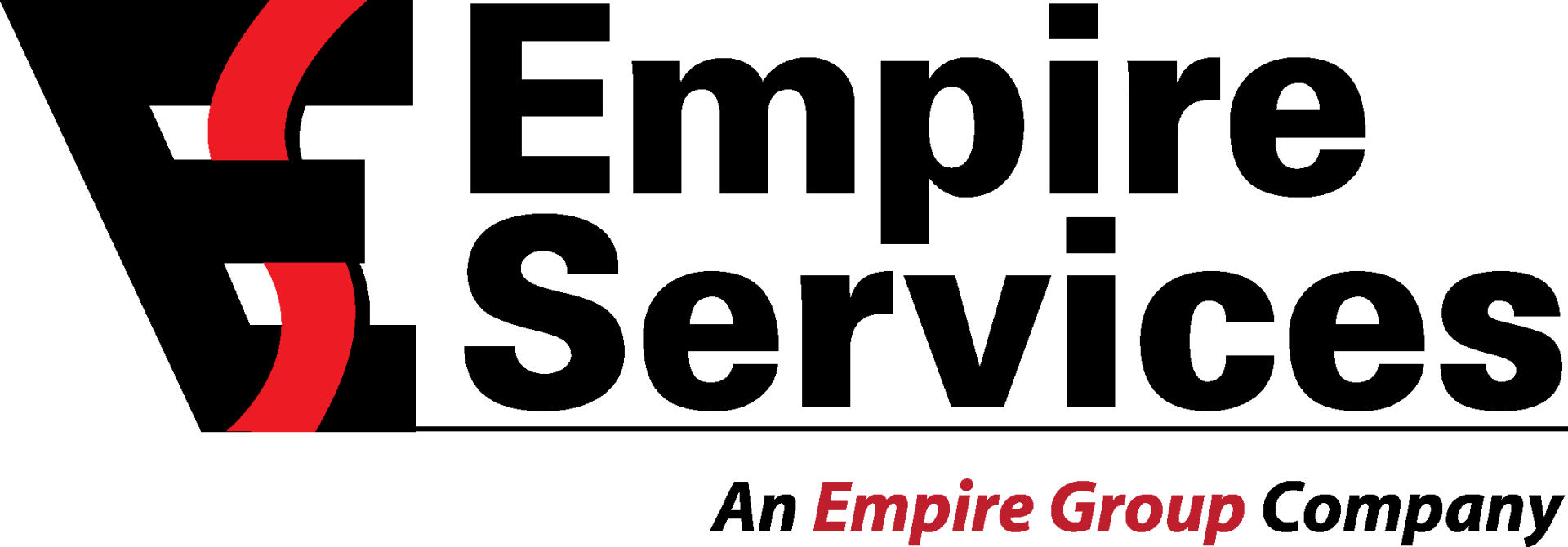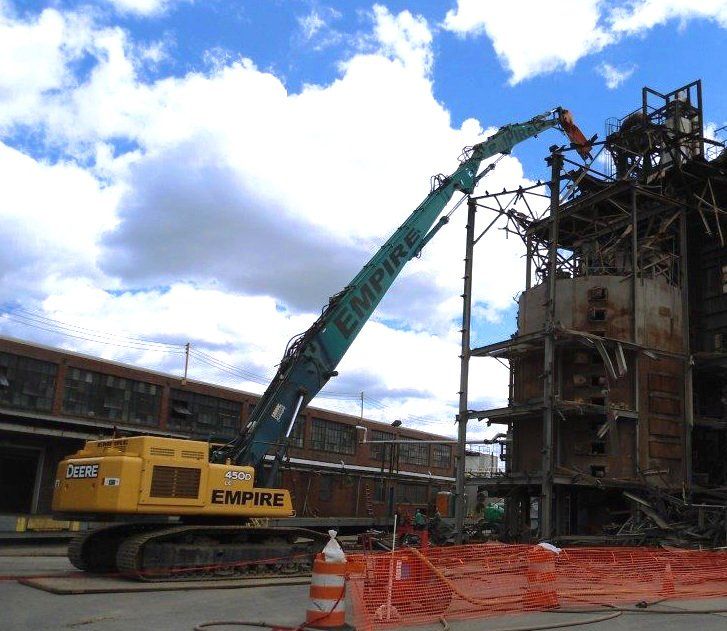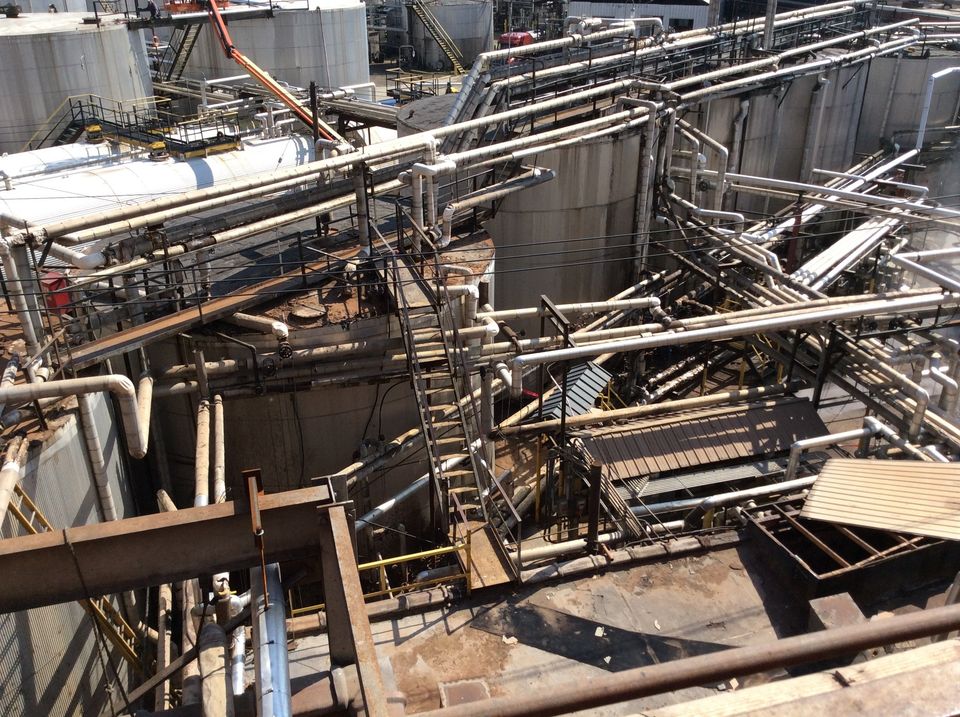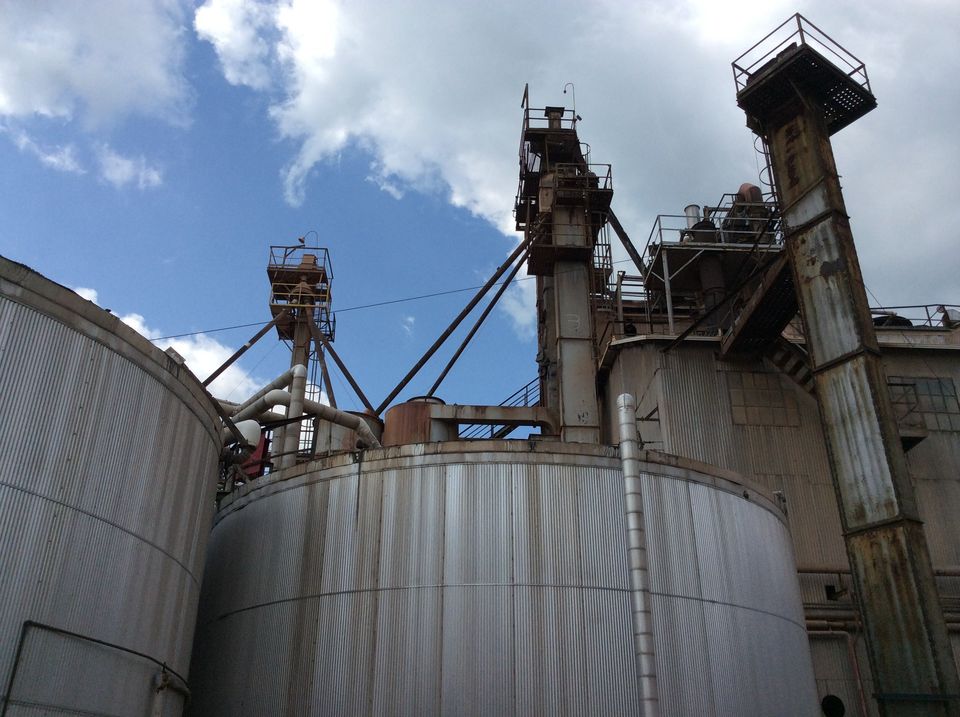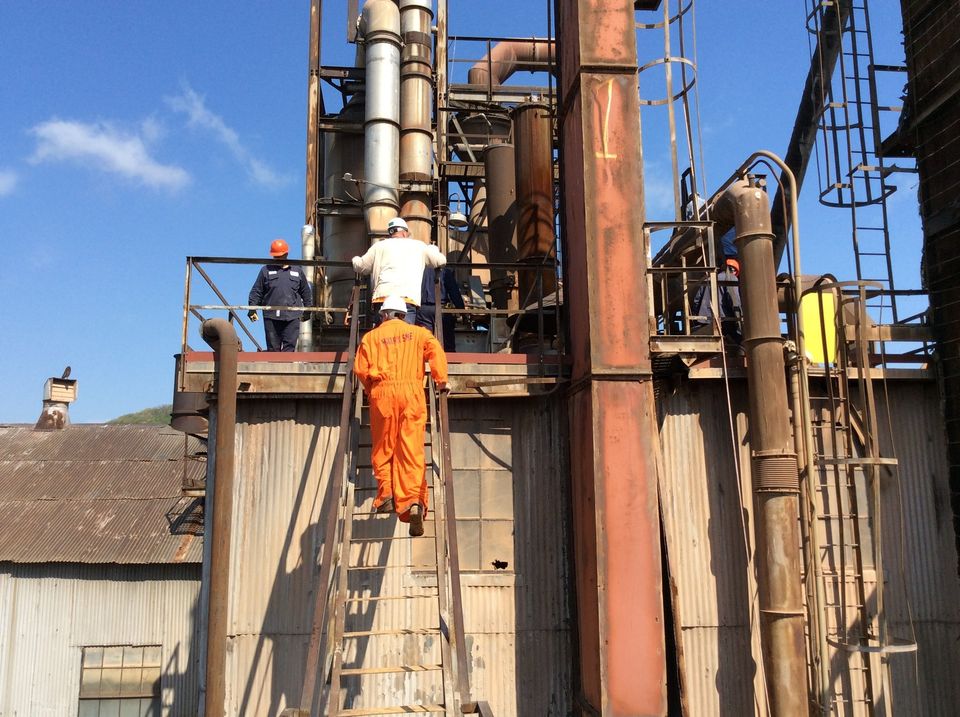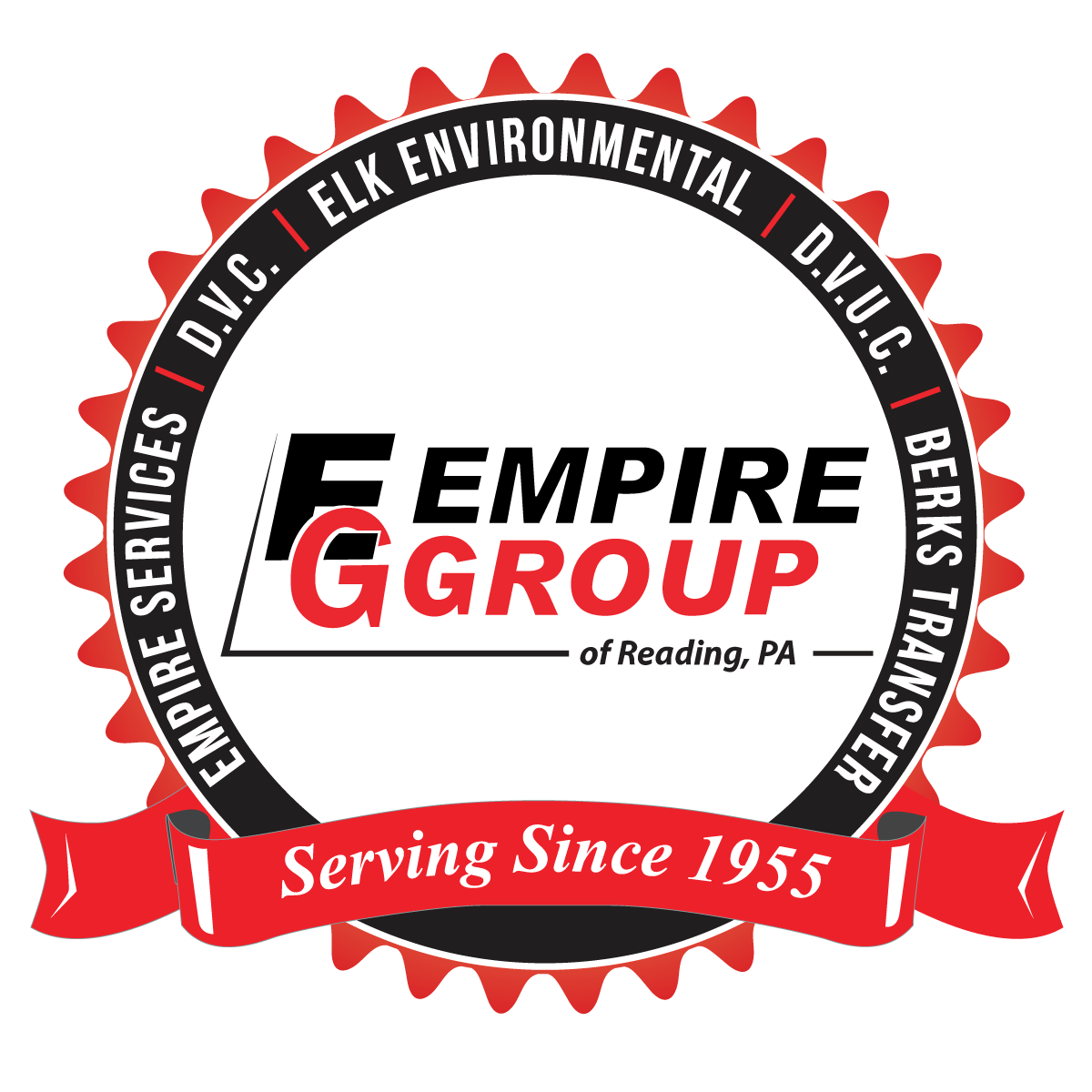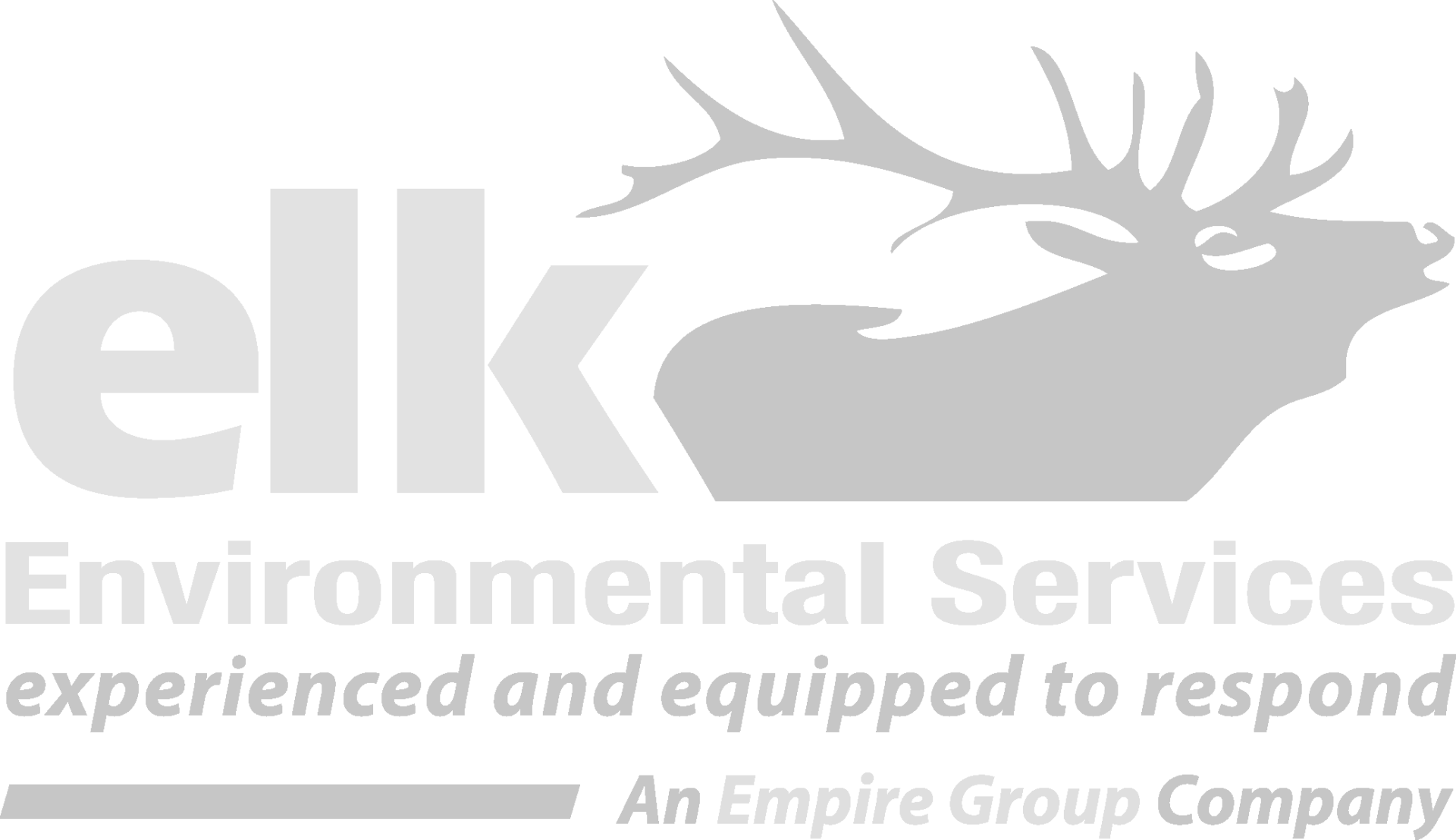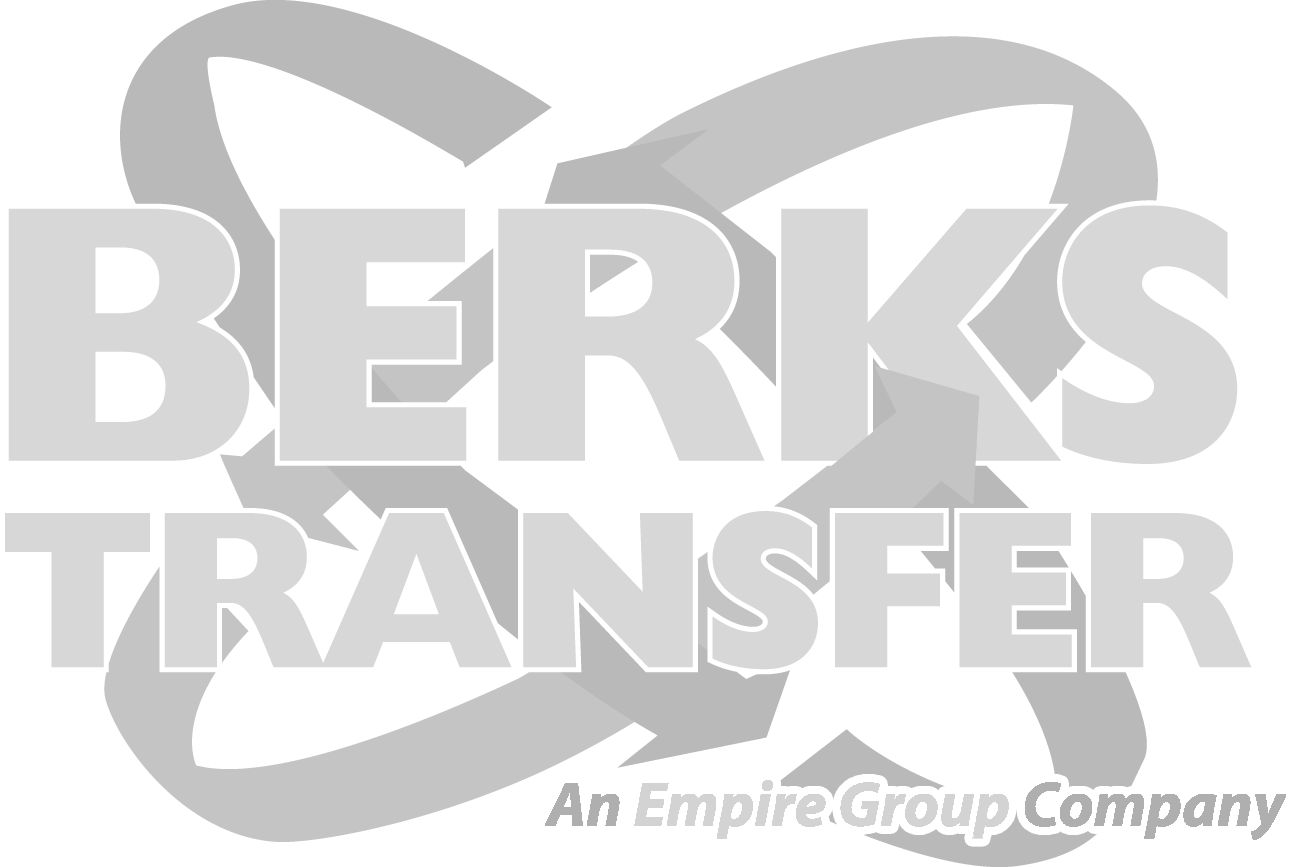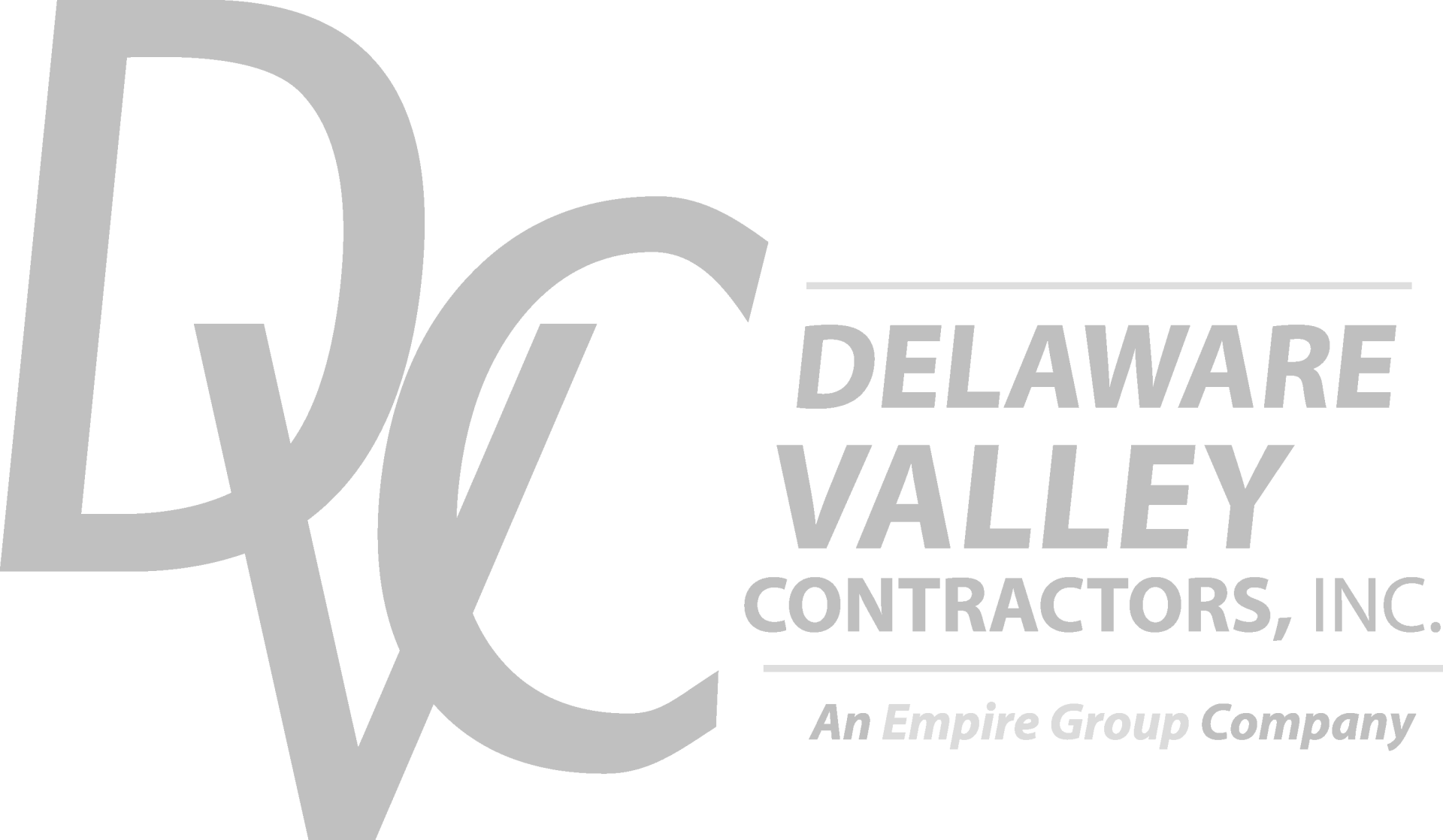INTERNATIONAL WAXES, INC.
JUNE, 2014
Empire Wrecking Co., of Reading, PA, doing business as Empire Services, began an intricate and challenging project at International Waxes, Inc. The job included the demolition and stabilization of several buildings damaged by an explosion that took place in May 2014. The buildings included two retort furnaces and three filter buildings, built in adjoining structures in the 1920s and '30s. International Waxes is a major supplier of wax for use in packaging, candles, tires, and adhesives.
Empire received the first call about the project from Philadelphia-based Matrix SME, the engineering firm working with International Waxes Inc. Matrix and Empire worked together on past projects in the Philadelphia area.
Empire’s Allen Dejewski, Vice President and Dean Smith, Vice President of Operations visited the 575-acre campus in Farmer’s Valley, PA. They studied the unstable condition of the structures, and created a scope of work for the massive job.
The complicated process included stabilization and removal of brick facades that were damaged and in imminent danger of collapse. Insulated pipes, some containing asbestos, were attached to the structures and were supporting the loosened façade. The job required abatement and removal of the pipes to be sure of the safety of the structure and the workers.
“We had to remove facades from the structures first, to access the furnaces,” said Smith. “While removing the façade, we had to deal with different types of pipes that were active and inactive. The brick façade was protruding in and around the pipes, which were holding the brick façade in place. It was a very delicate process and I am very proud of the efforts of our team. When faced with challenges and adversity, they showed great pride in their work and overcame those particular challenges.”
Along with the damage cleanup and demolition, many other features were removed to upgrade and modernize the facility, while reducing maintenance and increasing productivity. Included in the items demolished were multi-story building facades, process lines and equipment, material elevators, vessels, entire building structures, and two antiquated wax retort furnaces
that approached heights of 110 feet. Adding to the complexity of the job was the fact that the facility remained at 40 percent utilization during the demolition.
Empire removed facades, pipes, and other appurtenances at International Waxes prior to demolishing the two furnaces. Empire also stabilized and demolished parts of three adjoining filter buildings, referred to as the 5-ton building, the 7-ton building, and the 16-ton building. “The complexity of the work was due to the fact that no heavy equipment could be used on the filter buildings due to their centralized location and the intricacies of the wax processing pipes,” said Smith.
The 5-ton filter building was completely demolished. Only the thick brick façade was removed from the 16-ton filter building. The Empire crew removed the layers of brick by hand from the building. The steel structure inside the 16-ton building was saved for the rebuilding effort.
The original plan for the 7-ton filter building was to only remove the brick façade. However, during the process, Empire staff discovered that the structural design of the building would not facilitate the removal of the façade and the building would have to be completely disassembled. On request of International Waxes, the main structural steel and filters inside the 7-ton filter building were salvaged and utilized during the rebuilding.
As abatement and demolition commenced on several locations inside the 80-foot wide by 300-foot long footprint, alternate methods had to be designed to achieve abatement of the retort furnace to maintain the aggressive schedule. After approval for a variance with DEP, Empire removed the structure around the furnace and completed the abatement with a 95-foot long reach excavator .
During this critical project, Empire utilized multiple pieces of owned and rental equipment to perform the sensitive demolition, including a John Deere 450 95-foot long reach excavator, conventional excavators, backhoes, shears, and a 300-ton hydraulic crane for higher work.
Empire Services' demolition work was led by Smith and Jerry Jones, Site Supervisor and Project Manager. They mobilized a crew of more than 15 workers from various locations. Empire staff worked closely with International Waxes, Inc. employees.
After the demolition was complete, Empire assisted Matrix SME with the rebuilding efforts. The rebuilding was led by Mario Costa, Matrix Superintendent assisted by John Bosco, Empire Superintendent. During this phase of the work, Empire provided excavation and back-fill of foundations and miscellaneous pipework.
Empire Services’ sister company, Delaware Valley Contractors (DVC), provided the roll-off service and transported demolished materials. Empire crews removed and disposed of approximately 2,000 tons of material from the site.
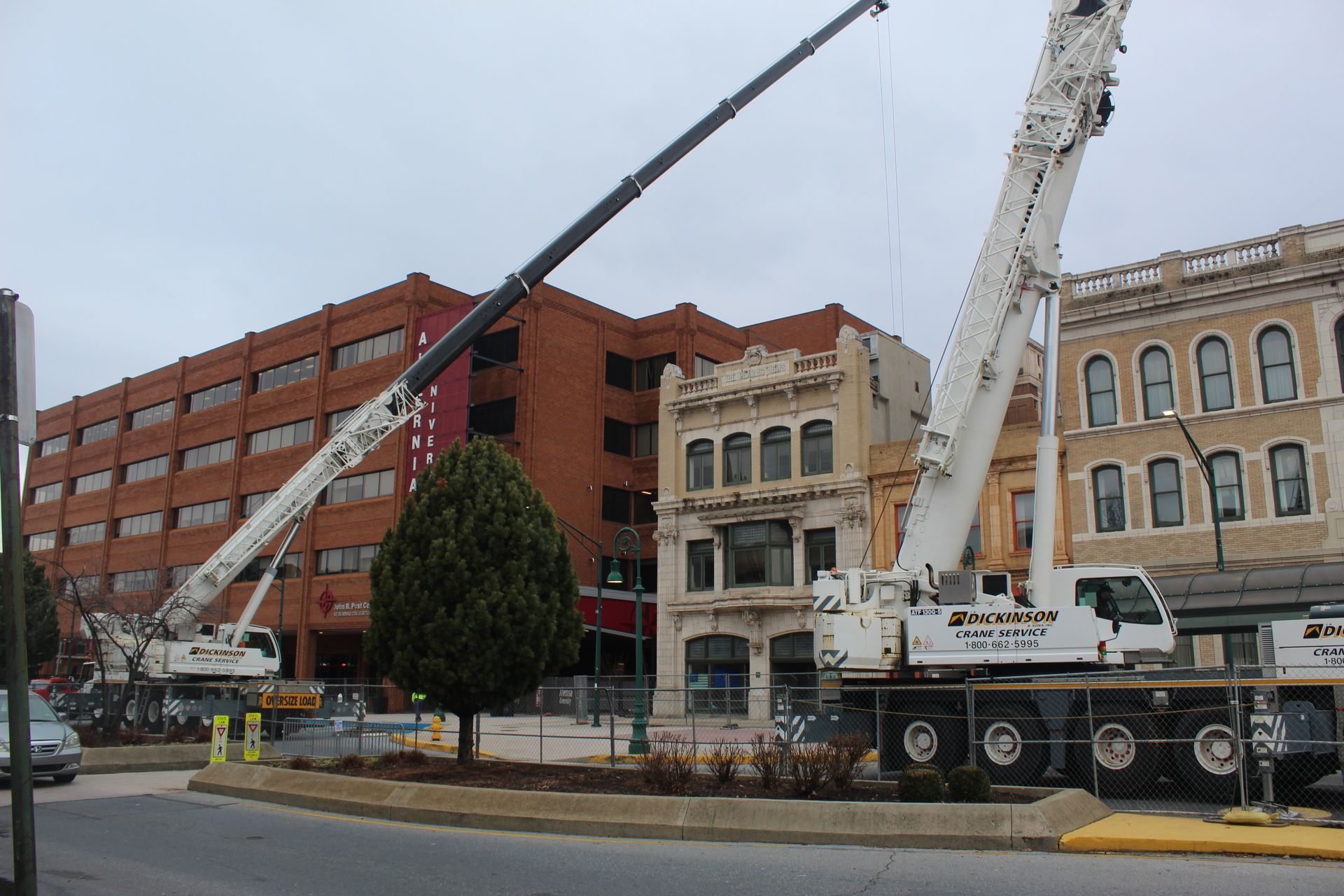
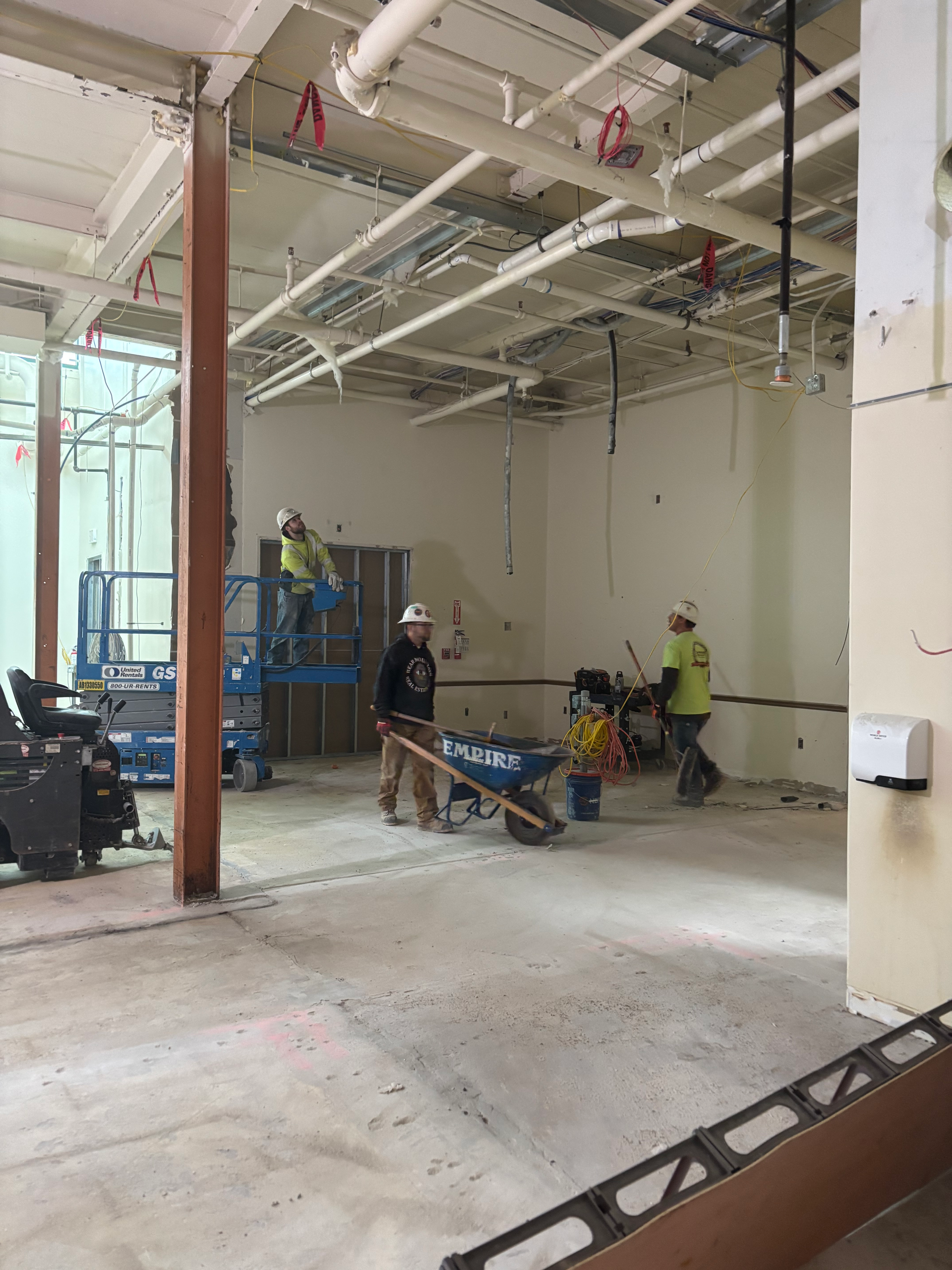
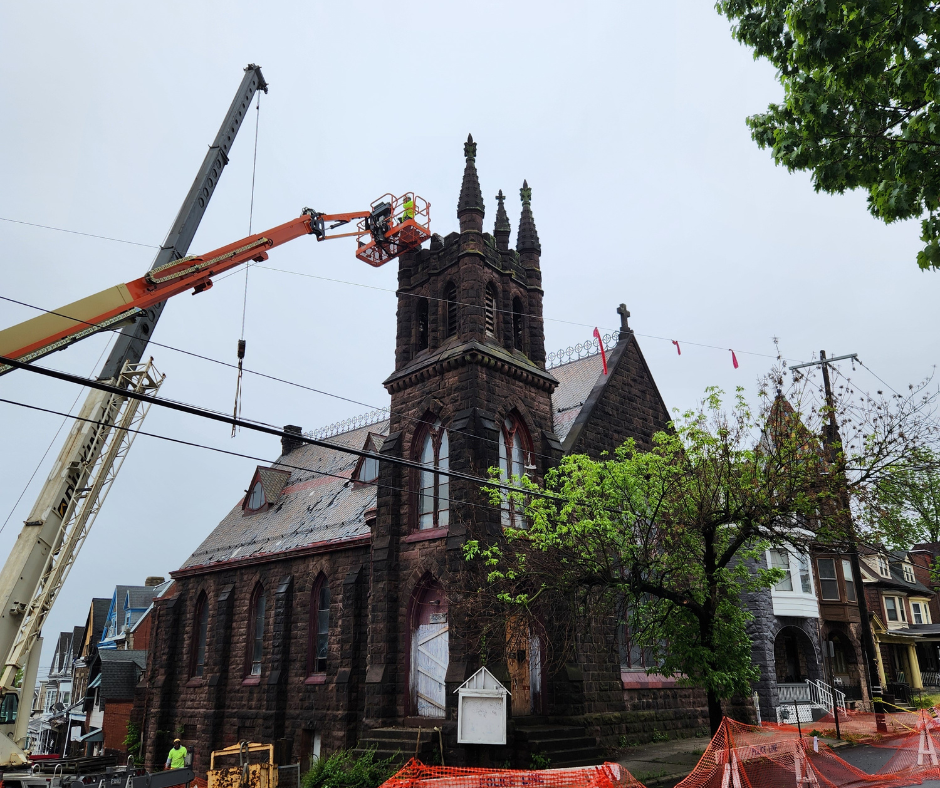
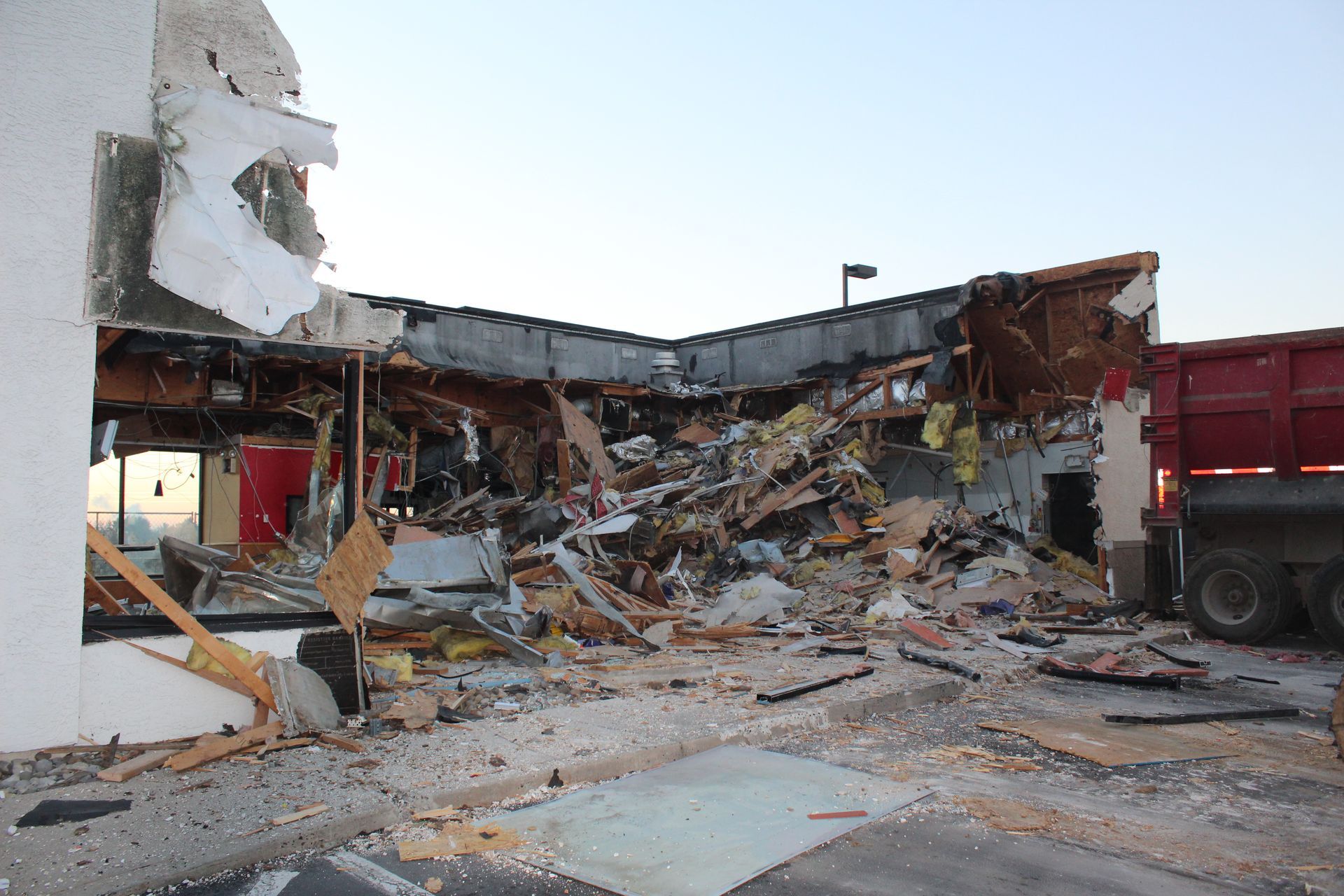
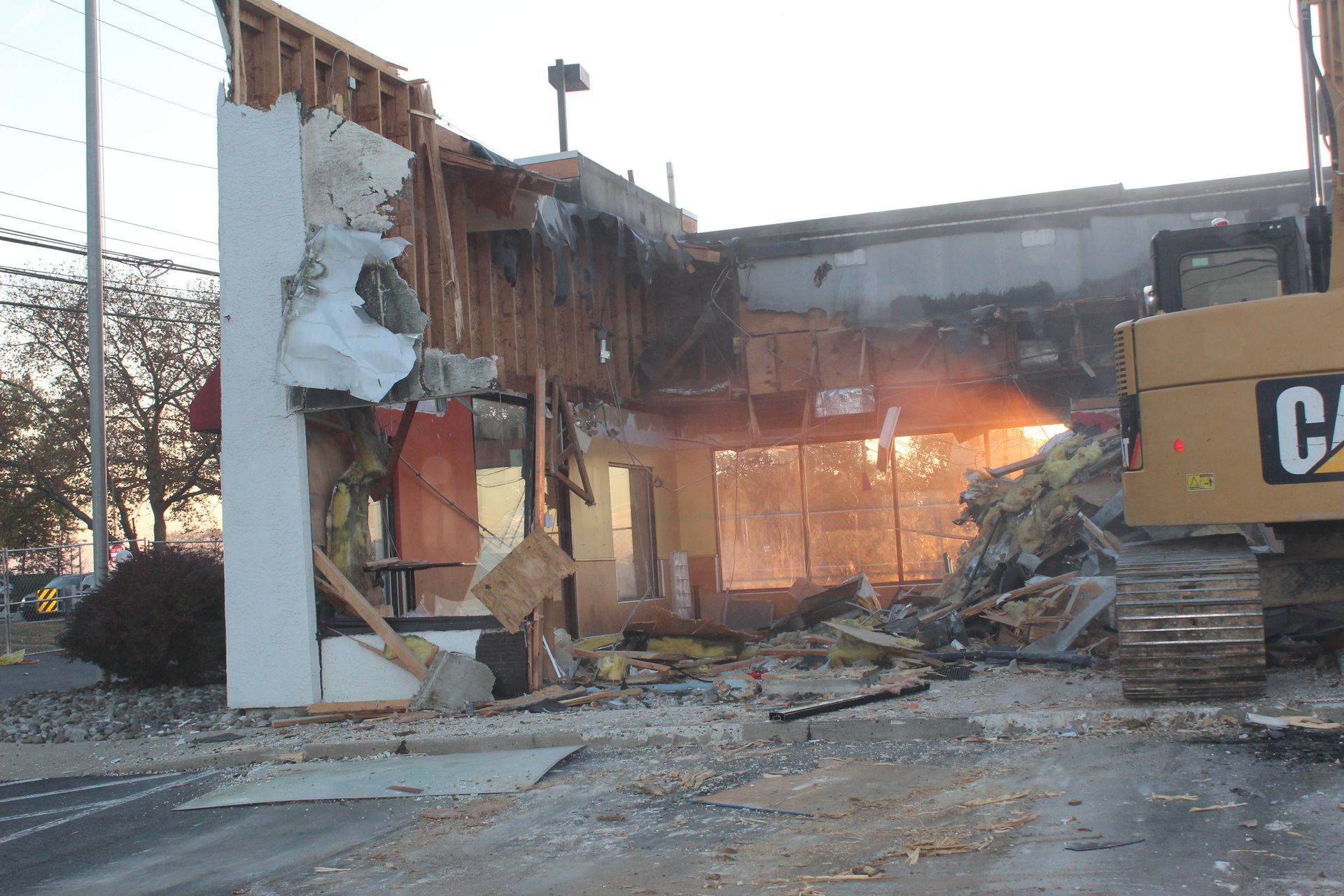
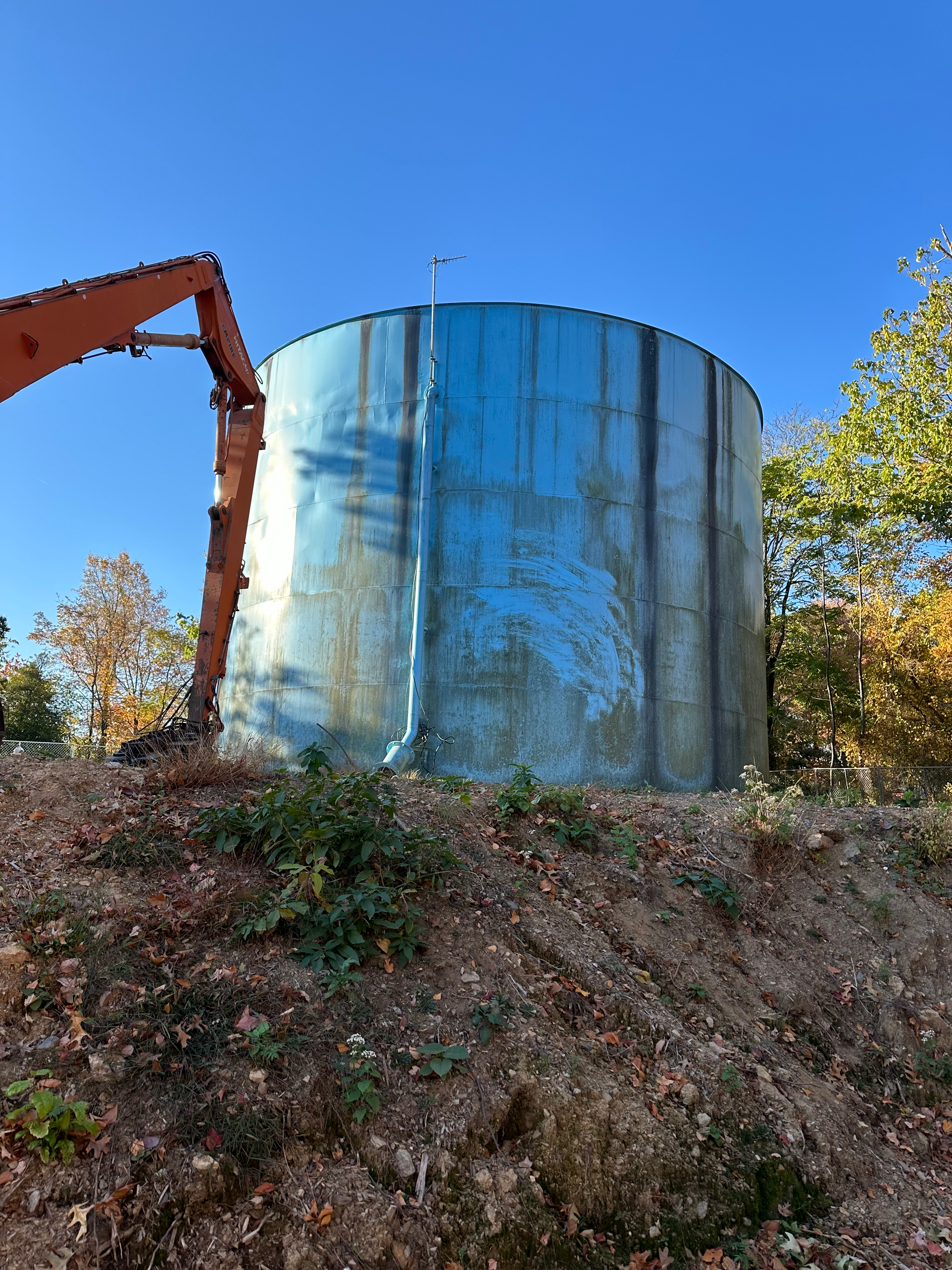
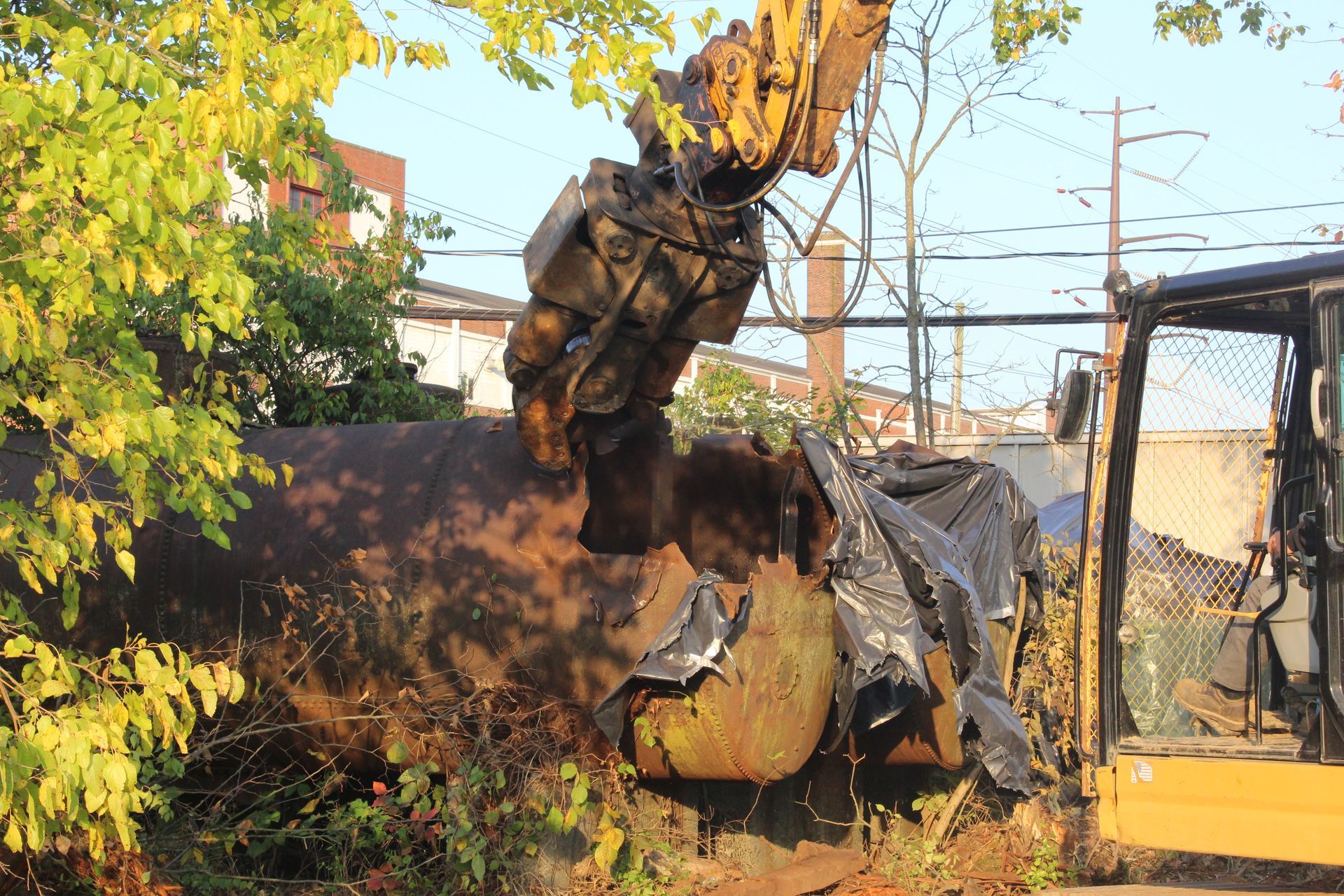

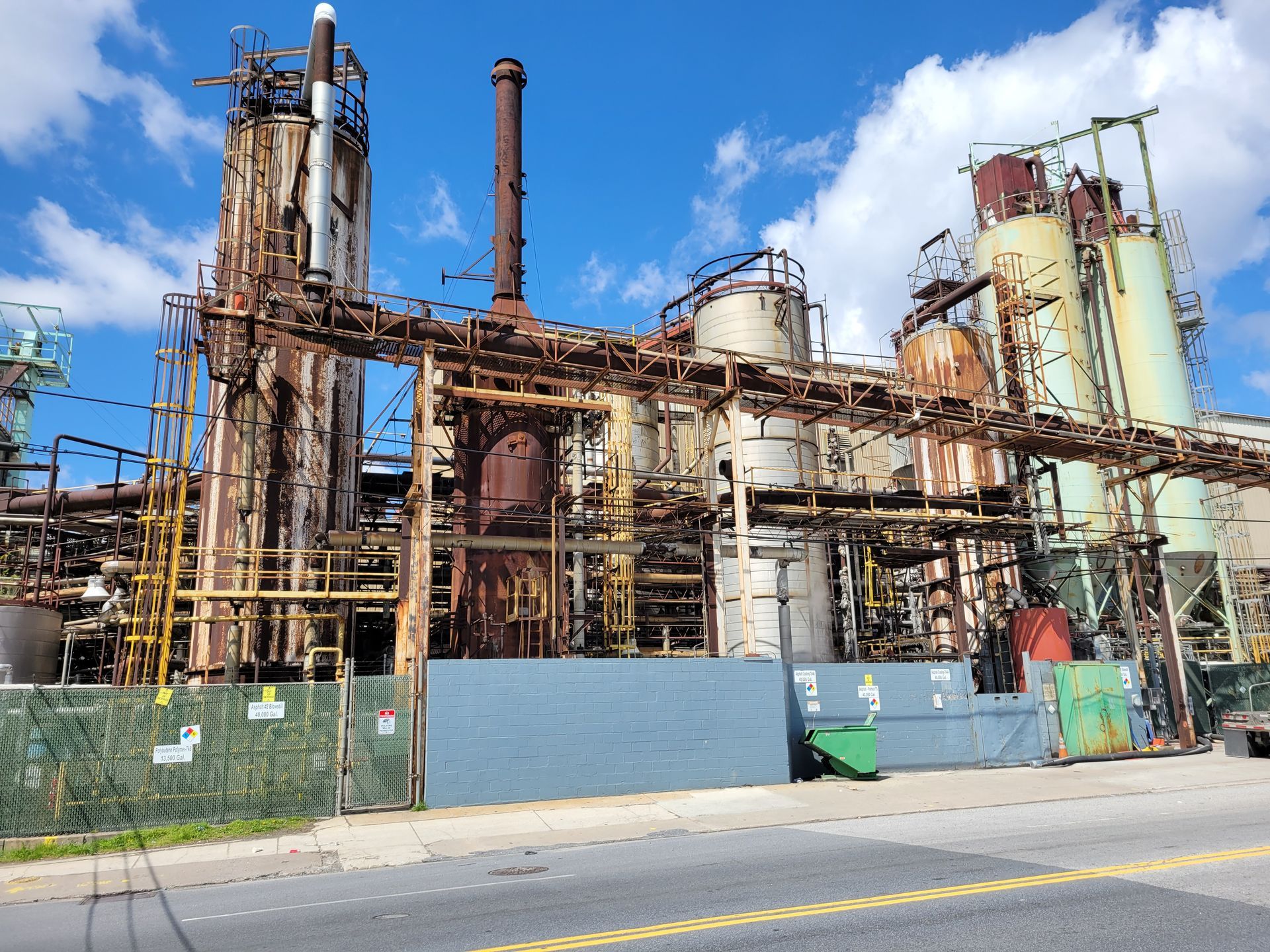

Get in Touch with Empire
We will get back to you as soon as possible
Please try again later
© All Rights Reserved Empire Services 2022
